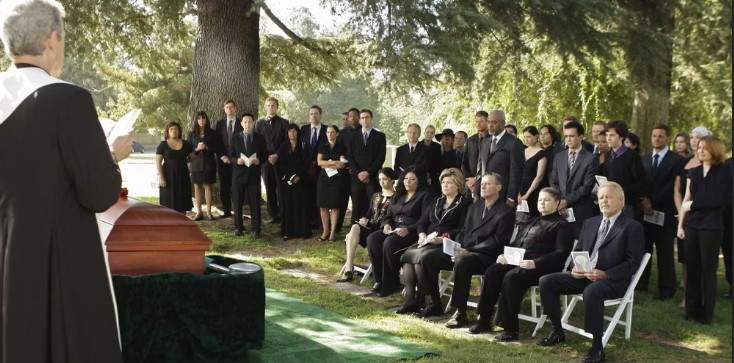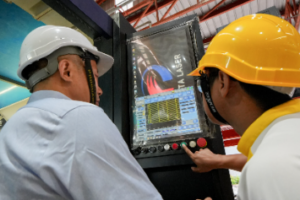
Taoist funeral traditions and rites hold a profound place in the cultural and spiritual practices of Taoism. These rites reflect the beliefs and philosophies of the Taoist faith, emphasising the journey of the soul and the importance of honouring the deceased. In this blog, we will delve into the various aspects of Taoist funeral rites, exploring their significance, practices, and the symbolism embedded within them. This overview aims to provide a comprehensive understanding of these rites, making it easier for readers to appreciate their depth and meaning.
Introduction to Taoism and Its Beliefs
The Philosophy of Taoism
Taoism stems from the teachings of Laozi and his major work, the “Tao Te Ching.” In this text, we learn the importance of living in accordance with the Tao. It, therefore, emphasised simplicity, humility, and compassion. The Taoist believes strongly in interconnectedness among all things in the universe and strives to live in balance with nature.
The Afterlife Concept in Taoism
In Taoist belief, death is not an end but a transition. The soul journeys to the afterlife, there to continue its evolution. Taoists perform ancestor worship to ensure the well-being of deceased souls and believe in the existence of numerous spiritual realms.
Preparations for a Taoist Funeral
The Role of the Family
The family members play a significant role in the arrangements of a Taoist funeral. Members of the family arrange for all the rituals right from selecting a date and a location to the preparation of the body.
Cleansing and Dressing the Deceased
The priests bathe and dress the deceased’s body in special white clothes as a symbol of purity. They believe this cleansing ceremony will purify the deceased soul and prepare it for its journey into the afterlife.
The Funeral Altar
This includes setting up the funeral altar. The altar would have a picture of the deceased, incense, candles, and various offerings like food and flowers. The altar acts as a centre of the rituals and symbolism of the presence of the spirit of the deceased. Taoist funeral services often emphasize the importance of this altar, as it plays a crucial role in guiding the deceased’s soul and ensuring their comfort in the afterlife.
Key Elements of Taoist Funerary Practices
The Wake
The wake can last for days, and it is a time for mourning and reflection. This is where relations and friends visit the house to mourn with the family and condone the death of their kin and other activities associated with the rites. It allows communities to be able to console the bereaved and give their respect to the dead.
Chanting and Prayer
Chanting and prayer are, indeed, major components of Taoist rites of passage for the dead. Consequently, priests and monks read out sacred texts and mantras to indicate the path to the soul and invoke blessings upon him. Moreover, according to beliefs, these chants help the soul proceed through the afterlife and ultimately achieve peace.
Offerings and Rituals
Offerings play a significant role in the Taoist funeral. They may include food and tea, as well as token items such as paper money and miniature models of household items. With these offerings, the family takes care of the deceased person in the afterlife and makes sure that he or she is comfortable.
The Funeral Procession
The procession at a funeral is a serious business and is generally led off by Taoist priests. This generally consists of the transportation of the coffin to the burial ground, which is accompanied by music and chanting. This travel is in itself symbolic of how the dead will leave this world and journey into the spiritual realm.
Symbolism in Taoist Funeral Rites
The Use of Color
Colour plays a big part in Taoist funeral rites. Purity and mourning are symbolised by the predominant use of white. Other colours, such as yellow and gold, may also be used: yellow symbolises the earth, and gold symbolises heaven.
Incense and Its Significance
Incense remains a standard component of Taoist liturgy. Moreover, images associated with incense burning signify the change of the material to the spiritual as a way of guiding the soul on its journey. Consequently, the fragrance, according to tradition, repels evil spirits while attracting benevolent ones.
Paper Offerings
The mourners burn joss paper and other offerings during the funeral, believing that these items will become real and provide the deceased with necessary materials in the afterlife. The burning of paper offerings represents the transfer of those items into the spiritual world.
Manner of Burial and Aftermath
The Interment
Burial techniques in Taoism differ but mostly involve laying the body in a coffin. They will choose a burial site according to feng shui so that the soul of the deceased may be put in peace and harmony. Painting symbols on the coffin and some inscriptions may bless and protect the dead.
Post-Funeral Rituals
During the post-funeral rites, we pay our respects to the dead and help their souls transition into the afterlife. They may include the “breaking of the soul,” wherein the family holds rituals to free the dead from worldly attachments. Other practices include the continued offerings and rites during significant anniversaries.
Mourning Period
This period, allocated for relatives to mourn and reflect on the past, often extends to months, occasionally even weeks. During this time, family members conduct various customs—namely decorating themselves in mourning attire and avoiding certain activities. Consequently, this gives the family time and space to pay homage to the dead and ultimately find closure.
The Role of Worship of Ancestors
Importance of Worship of Ancestors
Ancestor worship thus forms a very integral part of Taoist beliefs. It is based on the belief that dead ancestors continue to exert an influence on the lives of their living descendants. Honouring one’s ancestors is, therefore, a means for families to secure their guidance and protection. Such a practice also reinforces family ties and therefore helps to keep close the links between the living and the dead.
Ancestral Tablets and Altars
Ancestor worship is particularly focused on ancestor tablets and altars. Basically, these are just name-inscribed tablets of the dead placed on family altars. A family can pay respect, and in return be blessed by simply offering food, incense sticks, and flowers on these altars.
Regular Rituals and Festivals
Rituals and festivals are regularly held by the Taoist family as a way of honouring their ancestors. Activities like the Qingming Festival involve the cleaning of ancestral tombs, making offerings, and performing rituals so that ancestors are well cared for, and to create spiritual bonding within the family.
Modernization of Taoist Funerals
Merging of Customs
Many modern funerals today incorporate traditional Taoist rites with modern features. This allows families to continue showing respect and tribute to their heritage but with a modern twist in today’s fast-paced living. This can include some Western funeral customs or even modern technology used during the ceremonies.
Environmental Considerations
With the rising environmental awareness, some Taoist funeral practices have evolved to become more eco-friendly. This ranges from the adoption of biodegradable materials in coffins and the use of minimal paper offerings. These changes help decrease the negative impact on the environment from funerals while still upholding their spirituality.
Conclusion
Taoist funeral rites aim to honour the deceased and provide support in their afterlife journey. Understanding these practices fosters a profound admiration for Taoist beliefs emphasizing harmony, balance, and respect for nature. The rites not only give solace to those bereaved by the loss but also ensure that the soul of the deceased is well cared for in the spiritual realm. Their central values and ideals are beacons within the life-death life cycle as we continue to evolve these traditions in our human evolution.
Also Check: The Pros of Hiring a Funeral Undertaker



